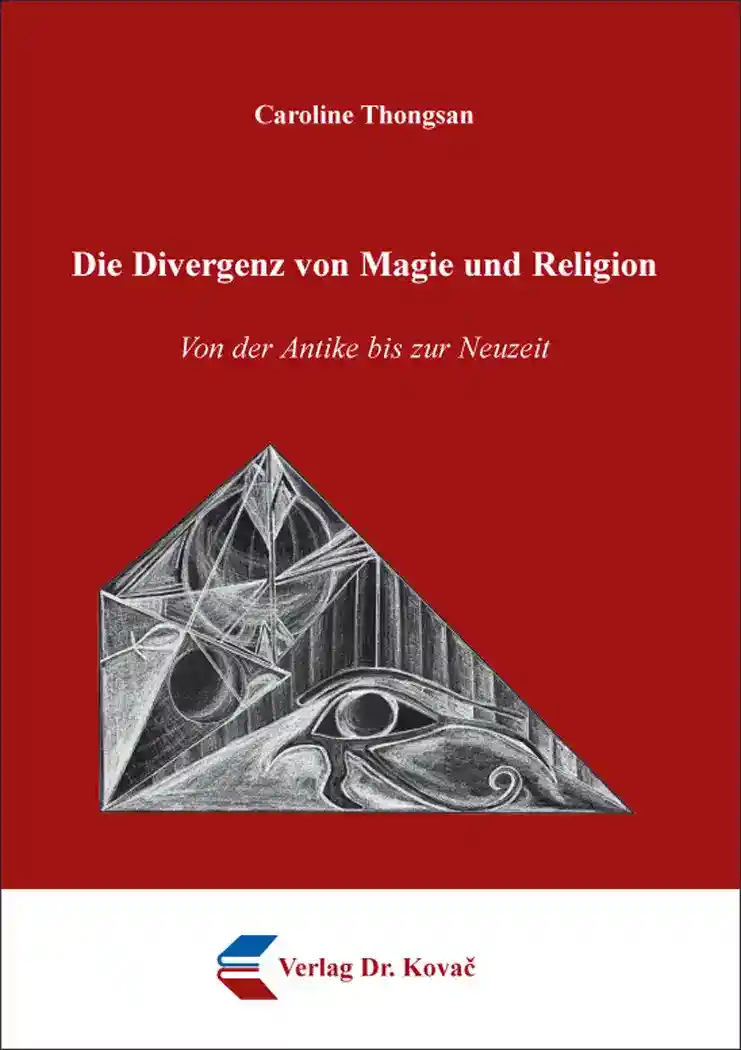Caroline ThongsanDie Divergenz von Magie und Religion
Von der Antike bis zur Neuzeit
Studien zur Geschichtsforschung des Altertums, volume 43
Hamburg 2021, 222 pages
ISBN 978-3-339-12300-8 (print) |ISBN 978-3-339-12301-5 (eBook)
About this book deutschenglish
Main topic of this book is the borderline between magic and religion, which has never been clearly drawn. Chronologically it makes a broad arc from ancient polytheism over the European-Christian middle age to early modern time. Not only because of this complex and multi-layered approach can it be considered as interdisciplinary: It also exceeds boundaries between Ancient and Medieval Studies, between history and Religious Studies, between Philology and historical anthropology.
The divergence of magic and religion is disposed on chronological and factually systematic criteria. Within antiquity, the book works its way logically from the general to the particular: beginning with fundamental considerations on the relationship between magic and religion, which first get exemplified by the corpus of Greek Magical Papyri (PGM) and later through a detailed analysis of the legal texts. This is followed by one chapter each on the transitional phase from antiquity to the Middle Ages, on medieval concepts of magic and on the situation in the early modern period.
In her exposition of the relationship between magic and religion in classical antiquity, the author first traces the preoccupation with magic back to the Neo-Babylonian period and the texts of the Chaldeans. She then briefly discusses the role of the μάγοι in Achaemenid Persia until she turns to the Greek and Latin terminology of magic and sorcery. Defined as a communicative technique situated in an „intermediate realm“ between the world of the gods and the human sphere, the book vividly describes the ideas of magic in Greco-Roman antiquity. Moreover, it deals with terms and practices of ancient religion as well as divinity. It underlines the fundamental compatibility of Greek, Roman and Etruscan ideas and notes that the modern concept of religion only emerged through an abstraction of Christianity.
The author grounds her general considerations on the relationship between magic and religion on a source-critical analysis of the corpus of Greek Magical Papyri (PGM) from the later Roman period. The gratifyingly small-step, methodically clean reading of this corpus together with the semiotic analysis of the papyrological material, which is underpinned by a „communication model of magic“, is the undisputed analytical core of the work.
Keywords
AnthropologieAntikeFluchGebetGeschichteGriechenlandKultMagieOpferPapyri Graecae magicaeReligionRitualRomIhr Werk im Verlag Dr. Kovač

Möchten Sie Ihre wissenschaftliche Arbeit publizieren? Erfahren Sie mehr über unsere günstigen Konditionen und unseren Service für Autorinnen und Autoren.
